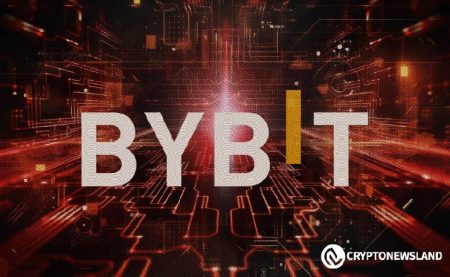The Bybit Hack and the Controversy Over Ethereum Rollback
A $1.4 Billion Heist and a Call for Blockchain Reversal
On February 21, 2025, the cryptocurrency world was shaken by one of the most significant hacks in its history. The Lazarus Group, a notorious cybercriminal syndicate linked to North Korea, stole 401,000 ETH (approximately $1.4 billion) from the Bybit exchange. The attack sent shockwaves through the crypto community, sparking debates about security, decentralization, and the feasibility of blockchain rollbacks. Samson Mow, CEO of JAN3 and a vocal Bitcoin maximalist, quickly proposed a controversial solution: rolling back the Ethereum blockchain to recover the stolen funds. Mow took to X (formerly Twitter) to announce that he was in discussions with Ethereum co-founder Vitalik Buterin about the possibility of reversing the chain. He also urged traders to halt all ETH transactions until a resolution was reached, warning that the situation was dire.
Mow’s proposal included a unique twist: renaming the current Ethereum blockchain “ETHNK,” implying that North Korea’s Kim Jong Un could potentially control its validators. Meanwhile, the restored chain would retain the “ETH” ticker, coexisting with Ethereum Classic (ETC), which originated from a similar hard fork after the 2016 DAO hack. While Mow’s suggestion was met with both support and skepticism, it highlighted the desperation and urgency surrounding the recovery of the stolen funds.
Bybit’s Response and the $140 Million Bounty
Bybit CEO Ben Zhou took a more cautious approach to the crisis. Instead of endorsing Mow’s unilateral rollback proposal, Zhou suggested that any decision to alter the blockchain should be put to a community vote. Emphasizing the democratic spirit of blockchain technology, Zhou argued that such a significant change should not be dictated by a single entity or individual. Zhou also outlined Bybit’s efforts to recover the stolen funds, including a $140 million bounty for white hat hackers who could help track and retrieve the lost ETH. Additionally, Bybit announced that it was collaborating with law enforcement agencies, the Ethereum Foundation, and other industry stakeholders to address the hack and prevent further attacks.
Zhou’s approach reflected a commitment to decentralized governance, a core principle of blockchain technology. However, the gravity of the situation and the sheer scale of the theft left many wondering whether community-driven decision-making could act quickly enough to prevent further damage. The Bybit hack also raised questions about the broader security of centralized exchanges and the vulnerabilities that hackers continue to exploit.
Community and Expert Perspectives Emerge
The rollback debate quickly gained momentum, with prominent figures in the crypto space weighing in. Tim Beiko, a key developer at the Ethereum Foundation, pushed back against Mow’s proposal, citing the complexity and impracticality of rolling back the blockchain in 2025. Beiko noted that Ethereum had grown significantly since the 2016 DAO hack, which led to the creation of Ethereum Classic. At the time, a hard fork was feasible because the network was still in its early stages, and the economic activity on the blockchain was relatively limited. Today, Ethereum supports a vast ecosystem of decentralized applications, making a rollback far more disruptive.
Beiko also pointed out that the Lazarus Group had already begun moving the stolen funds across 54 wallets, with a total of 489,395 ETH tracked by analytics firm Lookonchain. This dispersion of funds complicated the recovery process, as tracing and freezing the assets would require unprecedented coordination across the blockchain. Bitget CEO Gracy Chen and Tether CEO Paolo Ardoino announced their support for freezing transactions linked to the hack, with Ardoino confirming that 181,000 USDT tied to the Lazarus Group had been frozen. Meanwhile, Bitcoin maximalist Max Keiser joined Mow in backing the rollback, criticizing Ethereum’s alleged centralization and advocating for drastic action.
Technical Hurdles and Broader Implications
The technical challenges of rolling back the Ethereum blockchain are significant. As Beiko noted, Ethereum’s complexity far surpasses that of Bitcoin, where a rollback was last performed in 2010 to fix a critical bug that created 184 billion BTC. At the time, the move had minimal impact because the network was still in its infancy. Today, a rollback on Ethereum would risk derailing the highly anticipated Pectra upgrade, scheduled for April 2025. The upgrade has been in development for over a year and is seen as a critical step in Ethereum’s evolution.
Mow’s proposal to tweak Ethereum’s EIP-1559 fee burn mechanism further complicates the situation. While the idea aimed to adjust the network’s economics to prevent the stolen funds from being exploited, it also raised concerns about altering core protocols in response to a single incident. The debate over the rollback has reignited discussions about the balance between security and decentralization, with opponents arguing that such a move would undermine the credibility of the blockchain. The aftermath of the Bybit hack also drew comparisons to the 2018 Parity wallet hack, where 500,000 ETH remained unrecovered due to resistance from the Ethereum community.
The Road Ahead and the Bitcoin vs. Ethereum Debate
As the crypto community grapples with the fallout from the Bybit hack, the debate over the rollback continues to divide opinion. While some argue that drastic measures are necessary to recover the stolen funds and prevent further harm, others warn that altering the blockchain would set a dangerous precedent and risk undermining Ethereum’s decentralization. The situation has also reignited the long-standing rivalry between Bitcoin and Ethereum, with Bitcoin maximalists like Mow and Keiser using the hack as evidence of Ethereum’s perceived vulnerabilities.
Meanwhile, Binance CEO Changpeng Zhao (CZ) adopted a neutral stance on the rollback debate, choosing instead to focus on providing liquidity support to Bybit. CZ transferred 50,000 ETH to Bybit, while other exchanges like MEXC and Bitget pledged 12,652 stETH and 64,452 ETH, respectively, to help stabilize the exchange. These contributions highlight the solidarity within the crypto community and the shared commitment to overcoming challenges collectively.
As the situation unfolds, one thing is clear: the Bybit hack and the subsequent rollback debate have brought to light critical issues about blockchain security, governance, and the balance between decentralization and practicality. Whether the Ethereum community chooses to pursue a rollback, implementpreventative measures, or take a different approach entirely, the outcome will have far-reaching implications for the future of cryptocurrency. The world will be watching as this drama unfolds, hoping for a resolution that upholds the principles of blockchain technology while addressing the pressing need for security and accountability.















